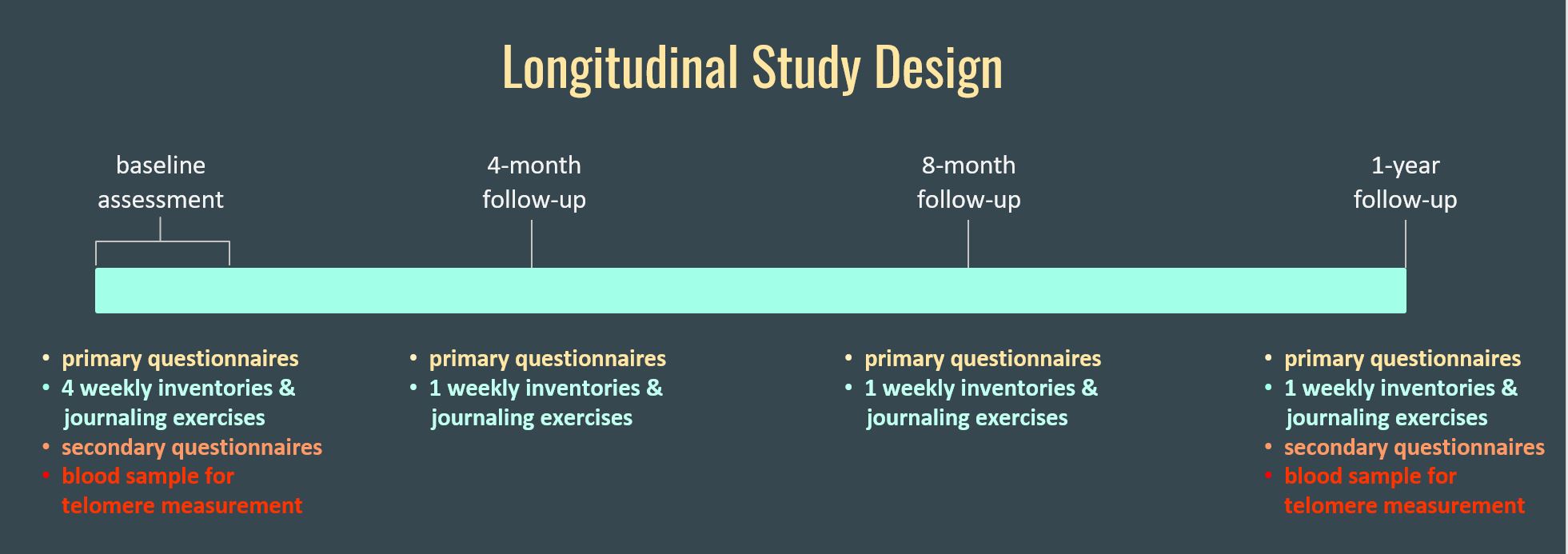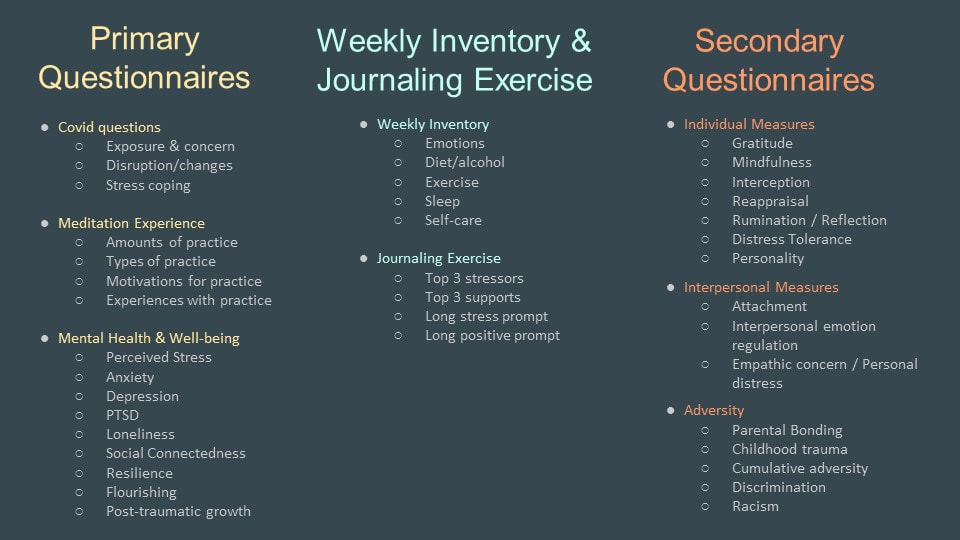|
The baseline assessment included several steps spaced over the course of a month. Participants first provided their informed consent via Docusign. Next they were directed to Qualtrics to complete the ‘Primary Questionnaires’. This first set of questionnaires detailed experiences related to the pandemic, meditation practice, and measures of stress, stress coping, and mental health. Upon completion of the primary questionnaires, participants were mailed an at-home collection kit to collect and return a small blood sample for telomere measurement. They were also directed to complete a ‘Weekly Inventory and Journaling Exercise ’. This set of questionnaires was designed to probe more labile aspects of mental and physical health, including emotional experiences, ongoing meditation practice, diet, exercise, and sleep patterns. This survey also included a journaling exercise that asked participants to describe the top three stressors and supports they had experienced in the prior week. This survey was filled out once a week for the first four weeks of the study. After participants completed their first weekly inventory and journaling exercise, they were directed to complete the 'Secondary Questionnaires'. This final set of questionnaires assessed more stable characteristics, like personality traits, and individual characteristics that might make a person more or less inclined to engage in contemplative practice, or that might be modified by contemplative practice, such as mindfulness, interoception, or interpersonal emotion regulation. Once they completed these four stages of the baseline assessment, participants were invited to attend group Zoom debriefing sessions with the principal investigators, group conversations with the DEI consultant, or to schedule individual Zoom conversations with the clinical or either of the principal investigators. At the 4- and 8-month follow-up assessments, participants completed one set of questionnaires that contained a selection of the questions from the primary and secondary questionnaires and one iteration of the weekly inventory and journaling exercise. At the 1-year follow-up assessment, participants completed a more extensive subset of the primary and secondary questionnaires, one iteration of the weekly inventory and journaling exercise, and were sent a collection kit to collect a second blood sample for telomere measurement. Participants were paid up to $325 for full completion of all study assessments (up to $145 for full completion of the baseline assessment), and proportionate amounts for partial completion. All study procedures were approved by the University of California, Davis Institutional Review Board. The ideal Data Collection Timeline can be seen under the Study Materials section. |



